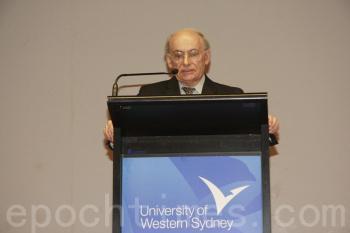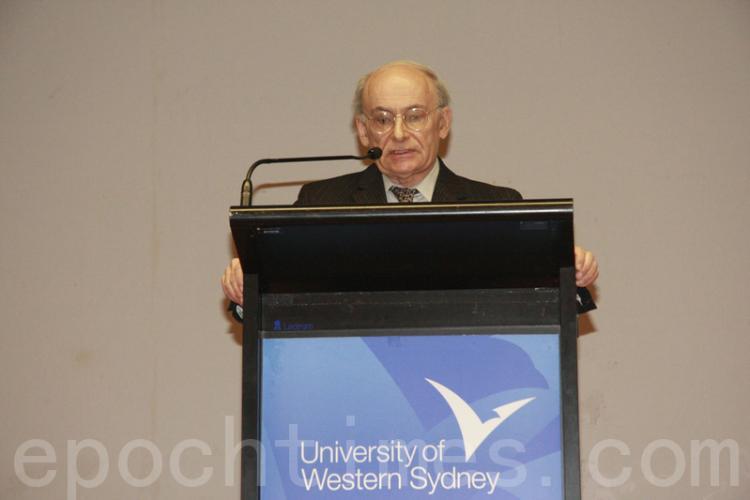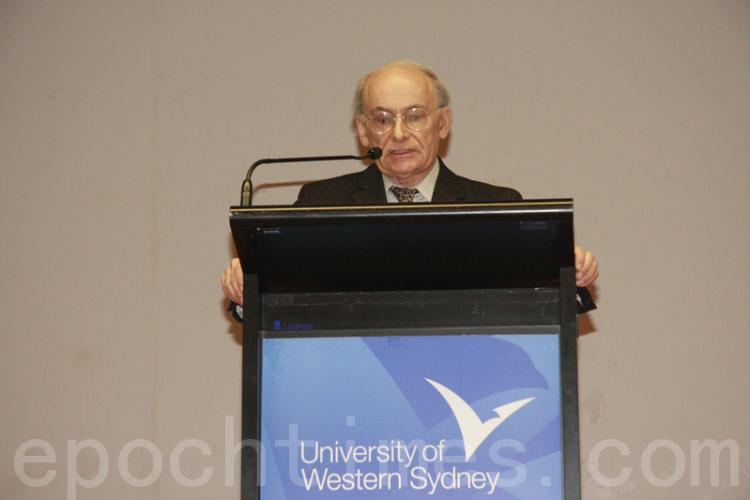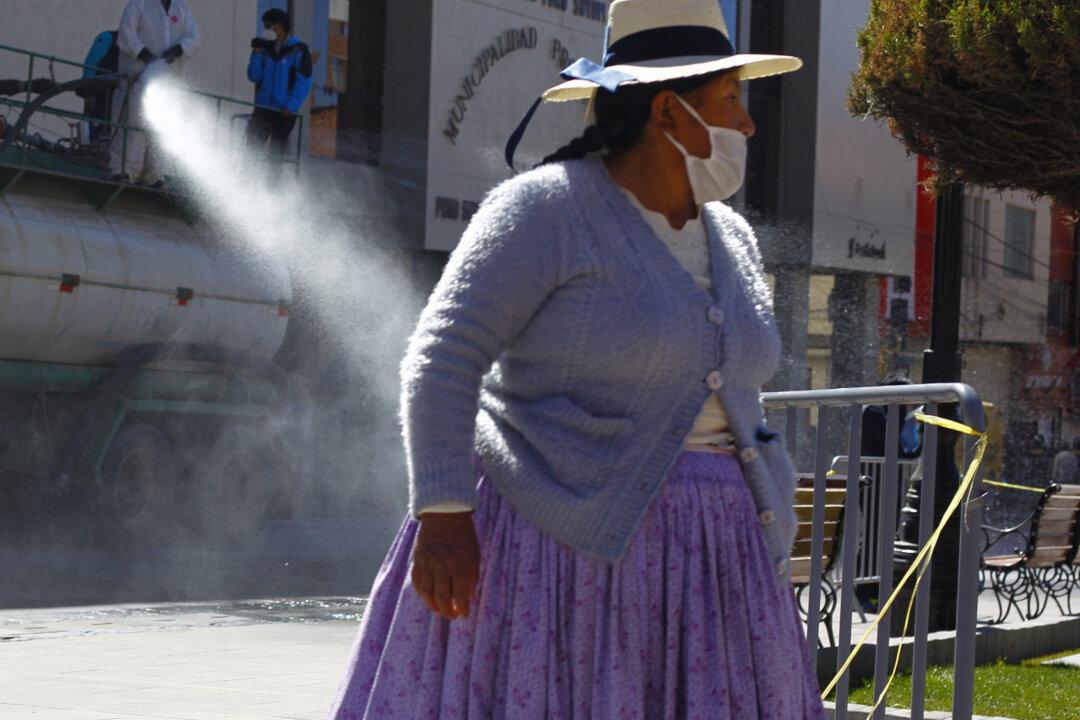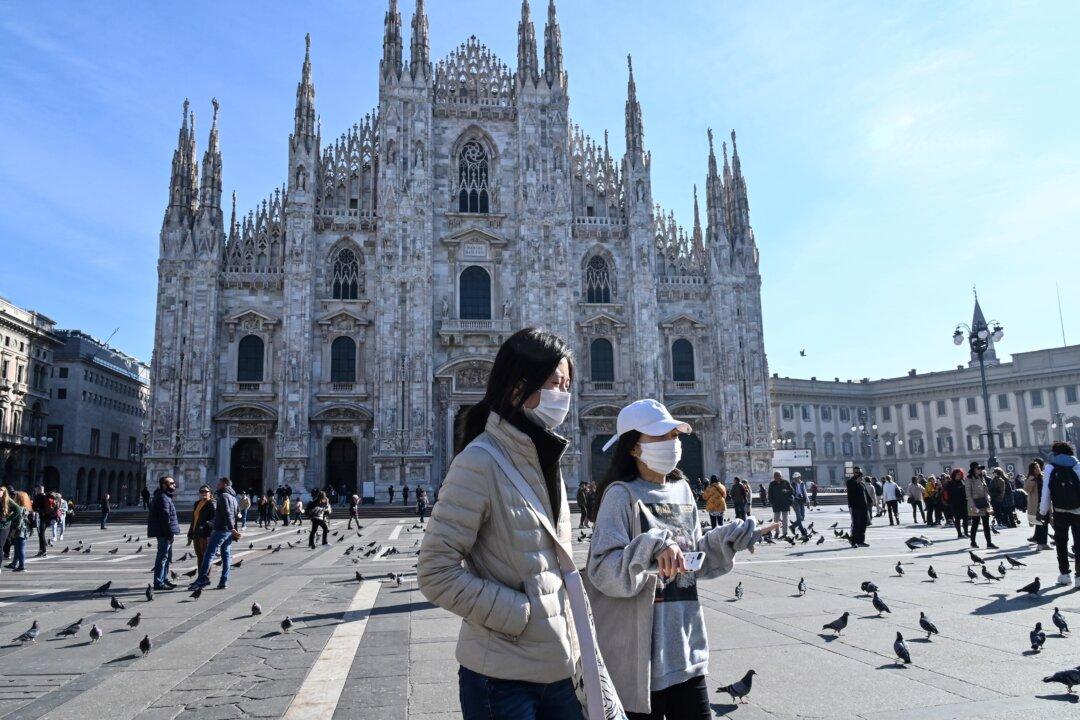SYDNEY — Canadian human rights attorney, David Matas, spoke about China’s organ harvesting at the International Conference on Human Rights Education on Nov. 5 at the University of Western Sydney, Australia.
In his lecture, Matas, law professor at the University of Manitoba, discussed the conclusions of his investigative report titled “Bloody Harvest - Report into Allegations of Organ Harvesting of Falun Gong Practitioners in China,” coauthored by David Kilgour, former Canadian Parliament member and Secretary of State (Asia Pacific).
The report, first published in July 2006, concluded that the Chinese authorities had been systematically killing practitioners of Falun Gong, a spiritual belief, for their organs. “The organs were being sold by Chinese hospitals to patients worldwide in need of transplants,” Matas said in his speech. The conclusion, he said, was based on evidence ranging from photos, recorded phone interviews with Chinese hospitals, official statistics and witness accounts, as detailed in the report.
Since the independent investigation, Matas and Kilgour set out to inform people around the world of their findings. “We could not just shelve our report and move on,” Matas told the audience. “We had to do something to end the abuse we identified.”
The two authors’ attempts have met with interference from the Chinese authorities and its overseas agents who have frequently pressured hosting organizations to cancel their speaking engagements. The two Davids have also been the subject of other harassment, including computer attacks and even death threats. Matas said that their report received no official response from the Communist Party, except for personal attacks and slander.
Matas urged people to stand up for human rights despite barriers of language, culture, geography, and religion. “Crimes against humanity are crimes against us all because of the humanity we share,” he said at the end of his speech. “Combating violations inflicted on people with whom we have nothing in common except our humanity brings that common humanity home.”
Matas himself has dedicated himself to revealing these crimes to the world. In August, he spoke at the International Congress of the Transplantation Society, where he urged the world’s transplant experts to say no to transplant tours. He praised pharmaceutical company Novartis who stopped participating clinical trials of anti-rejection drugs in China, and encouraged other medical professionals to follow suit.
According to the Kilgour-Matas report, China’s organ transplants soared beginning in 2001, coinciding with the Chinese authorities’ crackdown and mass arrests of Falun Gong practitioners. The PRC’s official statistics indicate that the source of 41,500 transplants between 2000 and 2005 is unaccounted for. In several recorded phone calls, hospitals in China admitted to using Falun Gong practitioners’ organs for transplants, the report said.
